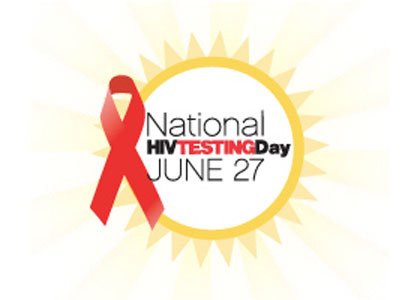The Anne Arundel County Department of Health will offer free testing for HIV, the virus that causes AIDS, on National HIV Testing Day, Friday, June 27, 2014. Oral HIV testing with results in 20 minutes and counseling services will be provided from 1 p.m. to 6 p.m. at My Brother’s Keeper Barbershop, 135 West Street, in Annapolis and at Afrolistics Barbershop and Salon, 13F Aquahart Road, in Glen Burnie. Free food and giveaways will be available.
This is the first time that the Department of Health has provided HIV Testing Day activities at barbershops. HIV/STD Prevention and Care Program Manager Jennifer Schneider said, “This is a great opportunity for the Department to take its outreach beyond the health centers where we provide weekly HIV testing for the community. It is important for us to build stronger connections to County residents and reach them in familiar and comfortable environments.”
In Anne Arundel County, approximately 46 percent of the adults and adolescents living with HIV cases are concentrated within four ZIP codes: 16.7 percent of the total living HIV cases are located in Glen Burnie West (21061); 13.8 percent are located within the Annapolis 21401 ZIP code; 9.8 percent in the Eastport ZIP code 21403; and 6.1 percent in the Glen Burnie East ZIP code 21060.
“I think the event will be good for the community,” said Afrolistics owner Angelo Richardson. “I have a diverse clientele. We not only want to make sure their hair is healthy, but that their overall health is good.”
Dr. Bishop Craig N. Coates, owner of My Brother’s Keeper Barbershop and chair of the County’s HIV/AIDS Commission, said, “Holding this event at a barbershop is innovative because we are looking for new ways to reach the people, and barbershops are where they gather. Historically, barbershops have been a place for conversations about everything in our lives. Why not take advantage of the space for relevant issues like HIV?”
Anyone can get HIV if you have ever shared needles, syringes, or drug paraphernalia; had a sexually transmitted infection (STI) or sex with someone who had an STI; or had unprotected sex. One in five people living with HIV does not know he or she is infected.
For more information, call 410-222-4498. For local and national updates on HIV/AIDS initiatives and events, follow the Department’s HIV/STD Prevention and Care Program on Twitter @HIVxpressions.
